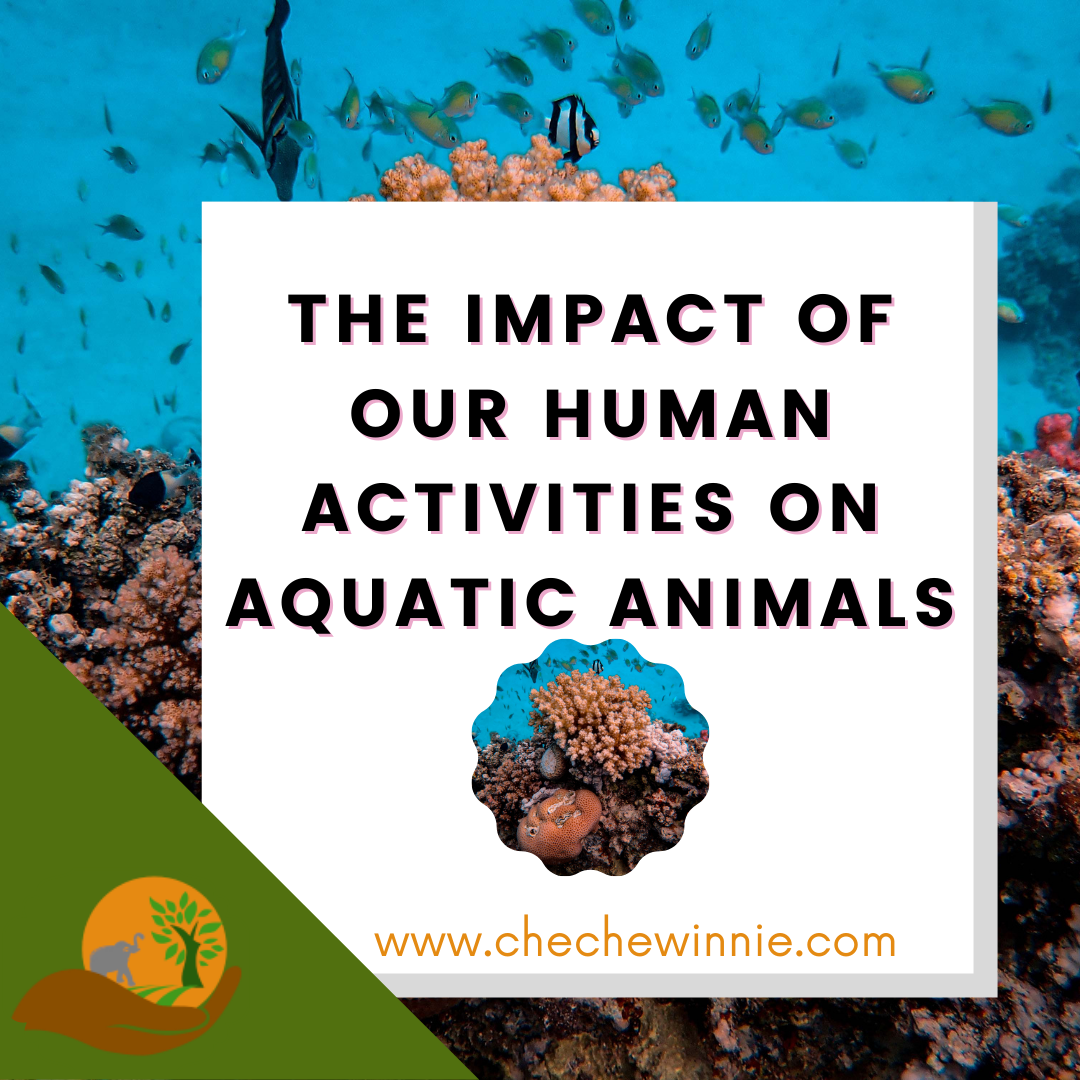As we celebrated World Aquatic Animal Day this year, highlight pointed towards the impact of our human activities on Aquatic animals.
As we advance in developments and need for more resources. Some of our activities have resulted in the loss or damage of other living organisms. This is so due to:
- Overfishing
- Habitat loss including the coastal ecosystems, coral reefs, and seagrass meadows.
- Introduction of invasive species
- Ocean pollution, acidification, and warming through the disposal of industrial, agricultural, and residential wastes.
Ocean and the Aquatic Animals do a lot than we may think
Just like trees, we seem to under-appreciate our oceans. That’s why it is one of the most polluted places on Earth.
We see it as the easiest place to get rid of our waste easily. And keep extracting its resources not caring too much if it’s able to regenerate /or comfortably handle our demands.
A good number of species in the oceans are yet to be understood by humans. And this has to lead us to harm them with or without knowledge.
Aquatic animals still remain a mystery to many. That’s why you will see us posing with them when we visit the ocean. Not necessarily being aware that we may be harming them, or exposing them to harmful stuff through touching. Stepping on some of them and even feeding them human food that upsets their tummies. Not really understanding what danger we are exposing them to.
There’s a need for vigilant sensitization to ensure our oceans and aquatic fellows remain safe from our actions.
This should also apply to those living along all waterbodies. As they eventually end up in the oceans.
We have to understand that every action affects all systems in our ecosystems because we are all connected. So all actions and decisions should always put that into account.
Teamwork needed for a Healthy Planet
Most of the activities promoting climate change are anthropogenic .
These give hope and reasons to individually contribute towards our planet’s wellness. This will be possible by going for sustainable measures and practices, having environmental welfare at the center of all decisions made.
Scientists and activists have been really vocal when it comes to climate change, they need us to make something concrete happen. They have been our whistleblowers, and we need to back them up by adhering to eco-friendly practices.
Climate actions are not against developments or comfort, but a rather conscious touch to all that. They help us embrace healthy lifestyles, maintain all species safely, sustainably use the available natural resources, fresh atmosphere, fewer diseases, among others. It’s full of goodness.
Just like any other change, we may not like it at the beginning. But with time and we learn more about sustainable practices, we will be happy that we made that call.
Your decisions to carry your reusable bag, embrace carpooling or using public transport means, stay aware of single-use plastic, avoid food waste, practice permaculture, just to name a few. Help us make giant steps in the right direction. So don’t forget to influence your friends in the same.
This will also help us push for leaders who have the same vision. And together we will conquer climate change.
Conclusion
All actions have consequences.
Don’t be a reason for the death of our corals, or endangerment of species. We need our air purifier, and oceans are our best shot.


This is so important 👏thank you Cheche for this post.
🙏🙏
As always, a great post. We always cringe at the extent of the greed for fishing and capturing our sea creatures and the damage done in the process and the environmental impact too re waste management. Unfortunately with growing populations seeking food sources from the sea, the coastal fallout of waste etc follows. We eat little fish if any…maybe once a month and no seafood or crustaceons ever but we are not dependent on that diet. It’s as always a united front by all industries and not isolating food sources for profit.
🙏💚 Thank you very much for the kind compliments. Sustainability is key to ensure we don’t lose more species to extinction.
♥️
Thank you
My son who is 23 just told me I must watch the documentary Seaspiracy.
Yes, it’s a great documentary.
Agricultural run off…ugh.